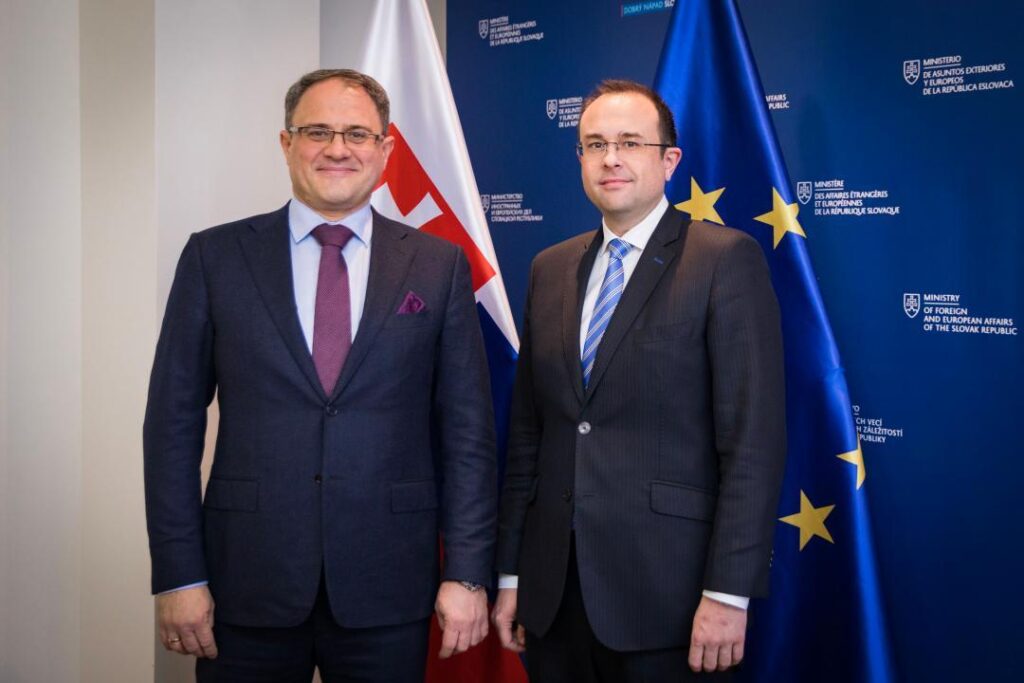Kazakhstan and Slovakia Discuss Strengthening Cooperation
Kazakhstan and Slovakia Discuss Strengthening Cooperation The possibility of strengthening cooperation between Kazakhstan and Slovakia was discussed during a working visit to Bratislava of the Deputy Minister of Foreign Affairs of Kazakhstan, Roman Vassilenko on December 11th. Vassilenko held meetings with colleagues in Slovak ministries, parliament, and representatives of business circles. During political and economic consultations with the State Secretary of the Ministry of Foreign and European Affairs of the Slovak Republic, Rastislav Chovanec, the parties discussed bilateral relations and the interaction of the two countries in international platforms. Vassilenko and Chovanec emphasised the dynamic, progressive development of Kazakh-Slovak cooperation. The State Secretary said that Kazakhstan is among the top five countries which Slovak business is interested in cooperation with. Particular attention was paid to the preparations for the tenth meeting of the Kazakh-Slovak Intergovernmental Commission on economic and scientific-technical cooperation and a business forum, which are scheduled for the first half of 2024 in Astana. During talks with the State Secretary of the Ministry of Economy of Slovakia, Vladimir Šimoňák, a positive trend of growth in mutual trade between the two countries was noted, the volume of which increased by 68.5% the first ten months of 2023. Issues of cooperation in energy, transport, machine-building, defense, IT, agriculture and tourism were discussed. Vassilenko proposed expanding the agenda of the upcoming commission in the areas of energy, transcontinental transport and the establishment of new freight routes between Europe and Asia, including the development of the Middle Corridor. In this context, it was proposed that the volume of freight traffic between Kazakhstan and Slovakia be increased. Particular attention was also paid to cooperation in the field of training engineering and technical professions. Currently, over 500 students from Kazakhstan are undergoing technical training and internships at enterprises of the Slovak automotive industry, and the number of students from Kazakhstan studying in Slovak universities continues to grow annually.






